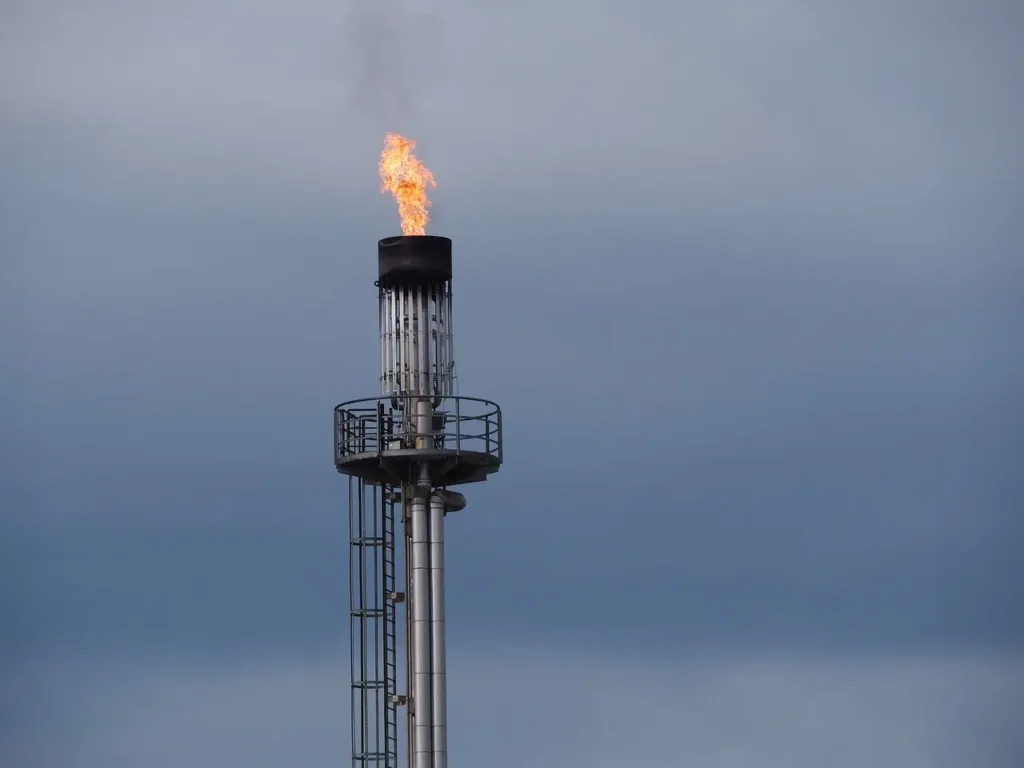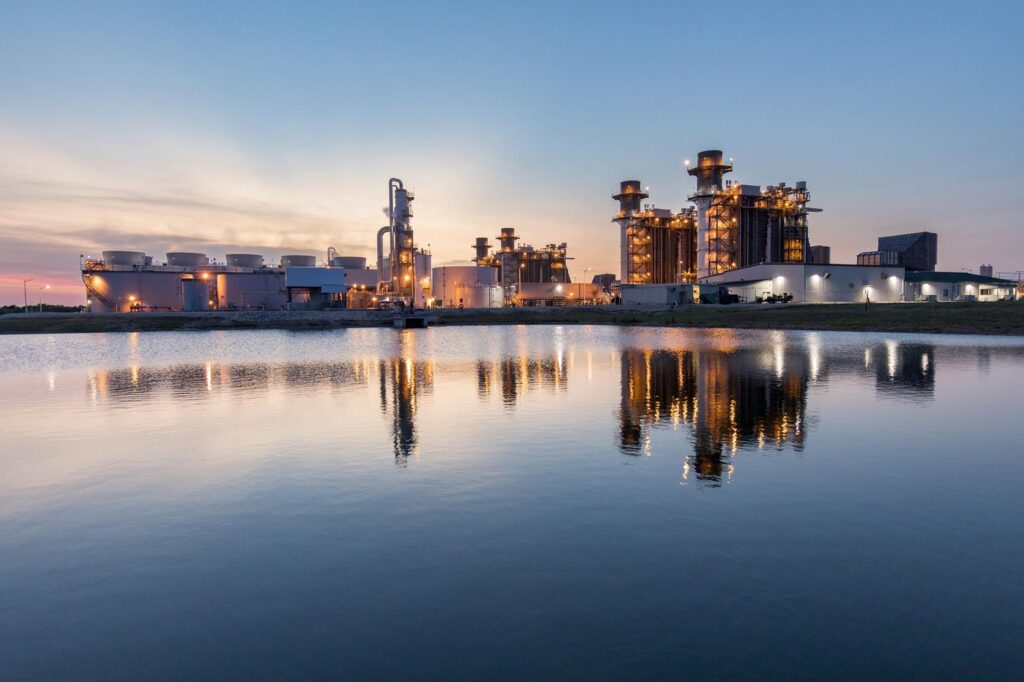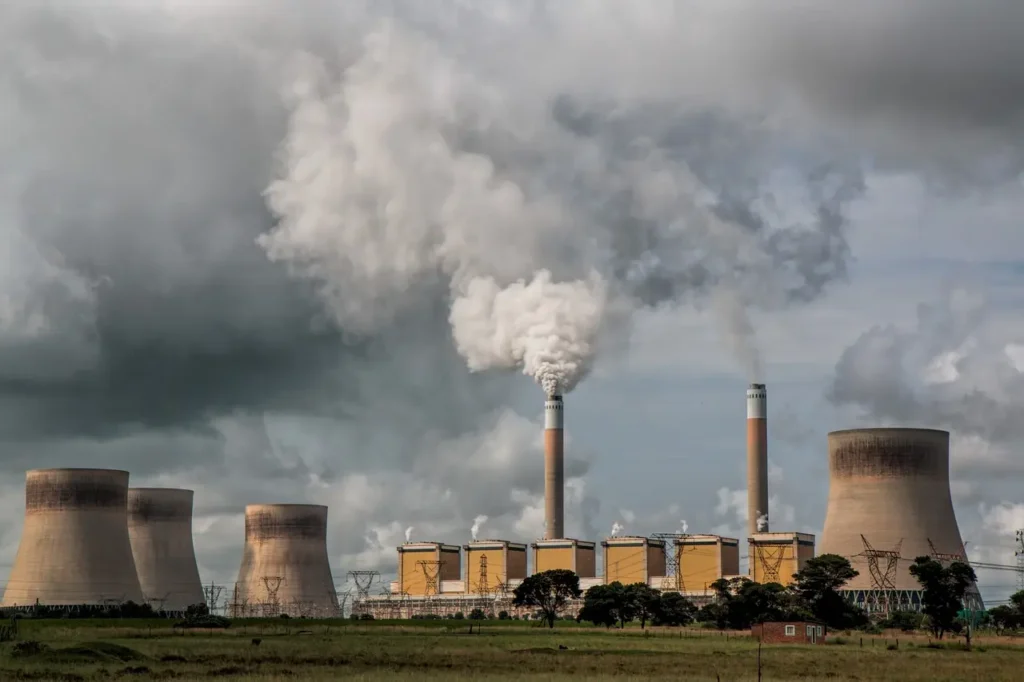Environmental Impact of Natural Gas
5 minute readNatural gas offers a lower-emission alternative to coal and oil
Home > Learning Center > Is Natural Gas Safe?
Natural gas is a widely used energy source that offers high efficiency, affordability, and lower emissions compared to other fossil fuels, making it one of the safer energy options.
5 minute read • Last update April 2025

Natural gas powers millions of homes and businesses across the United States and plays a crucial role in electricity generation. In Texas, where energy demand is high (especially during a Texas summer) and weather extremes can impact the grid, natural gas offers both stability and efficiency. But is natural gas truly safe for your home and the environment?
This guide will answer that question in depth, covering safety in your home, power plants, and what you need to know to stay protected.
When used correctly, natural gas is one of the safest and most cost-effective energy sources available for residential use.
It’s relied upon by nearly 61% of U.S. households for heating, hot water, and cooking.
High-efficiency heating, cooking, and water heating
Gas appliances typically heat faster and more evenly than their electric counterparts. For example, gas stoves give you instant flame control—something professional chefs prefer for precision cooking. Gas furnaces can also heat your home more quickly than electric heat pumps, making them ideal during sudden cold snaps.
Lower emissions compared to oil or coal
Natural gas combustion emits 49% less carbon dioxide than coal and 30% less than oil. That translates to a cleaner option for both air quality and climate goals when replacing older fossil fuels.
Cost-effectiveness for households
Natural gas is generally more affordable than electricity in regions like Texas, especially during colder months. Households using natural gas heating can save hundreds of dollars annually compared to electric heating alternatives.
While natural gas is widely used for its efficiency and reliability, like any energy source, it requires proper handling to minimize potential hazards.
Gas leaks and carbon monoxide risks
Gas leaks can result from aging infrastructure, faulty installation, or poorly maintained appliances. Natural gas is combustible, and carbon monoxide—an odorless and potentially lethal gas—can form when combustion is incomplete. These risks are more closely tied to the infrastructure delivering natural gas than to the fuel itself.
Fire or explosion hazards from poor appliance maintenance
Accumulation of uncombusted natural gas presents a material risk of fire or explosion. Appliances that are improperly installed, inadequately maintained, or insufficiently ventilated can materially increase exposure to these hazards. Regular inspections and adherence to manufacturer specifications will mitigate these risks.
Misuse of ventilation or heating equipment
Utilizing appliances outside of their designed function, such as using ovens for heating, or obstructing ventilation systems, may result in unsafe indoor air conditions, including elevated levels of carbon monoxide. Ongoing education, adherence to recommended use, and scheduled maintenance are standard mitigation measures.
Texas homes are built with natural gas in mind, but it’s still important for homeowners to take proactive safety measures. Here’s how to keep your household safe and your gas appliances working efficiently.
Natural gas providers must comply with state and federal safety standards. Systems are built with:
These components are designed to detect issues early and shut down the system before harm can occur.
Natural gas has a distinctive “rotten egg” odor added (mercaptan) to help detect leaks. If you smell it:
Annual inspections by a licensed professional can help detect leaks or inefficient combustion. Replace worn connectors or outdated appliances, and ensure all vents are clean and unobstructed.
In case of an emergency, like an earthquake, flood, or suspected leak, you’ll need to shut off the gas quickly. This valve is typically outside, near your gas meter. Label it and train household members to locate it.
Place a detector on every floor, people typically place them near bedrooms. CO detectors alert you to invisible threats and are required by law in many Texas municipalities.
Regular cleaning of your gas fireplace prevents soot buildup and maintains proper airflow. Blockages can reduce efficiency and increase the risk of CO emissions.
In Texas, natural gas powers around 40% of the state’s electricity, making it a critical component of our energy infrastructure. This widespread reliance isn’t accidental—it’s a result of natural gas’s proven safety, reliability, and performance in both residential and utility-scale applications. Unlike other fossil fuels, natural gas combustion produces significantly fewer pollutants, contributing to cleaner air and a lower environmental footprint.
Gas-fired power plants have robust safety protocols, often exceeding those of older coal or oil plants. These facilities are monitored around the clock with systems that can detect temperature spikes, pressure changes, or chemical leaks in real-time.
Additionally, natural gas plants often serve as peaker plants, meaning they activate quickly during high-demand periods to keep the grid stable—such as during a heatwave or unexpected generator outage.
Natural gas releases significantly less sulfur dioxide, nitrogen oxides, and particulate matter than coal, contributing to improved regional air quality. While methane, a potent greenhouse gas, can escape during drilling, transportation, and storage, its use remains safe and heavily regulated. Federal and state safety standards govern every stage of the natural gas supply chain, from extraction to distribution, helping to mitigate risks and ensure operational integrity. Advanced leak detection systems, pipeline monitoring, and flaring minimization are key tools in improving the environmental profile of gas generation. Reducing methane emissions is a top priority for both industry leaders and regulatory agencies, further reinforcing natural gas as a safe and responsible energy source.
Texas’s reliance on natural gas provides a buffer against outages. Gas-fired plants can be dispatched quickly and don’t rely on weather conditions, unlike solar or wind, making them essential during extreme events like Winter Storm Uri in 2021.
No. While not toxic in small amounts, natural gas displaces oxygen and can cause dizziness, fatigue, or suffocation in confined spaces. Carbon monoxide—a more serious byproduct—is poisonous and must be carefully guarded against through proper appliance use and ventilation.
While natural gas is undeniably cleaner than coal or oil in terms of emissions, it is still a fossil fuel, and challenges remain—methane leaks and land disturbances during extraction can impact ecosystems. However, the adoption of advanced cleaner technologies and enforcement of strict environmental standards are helping to mitigate these effects. Modern drilling techniques, improved leak detection systems, and tighter regulatory oversight all contributing to minimizing environmental impact, making natural gas a more sustainable and responsible energy option.
Natural gas is not classified as renewable or fully clean, but it is considered a transitional energy source, helping reduce reliance on dirtier fuels while renewables continue to scale.
Yes. It’s abundant, domestically produced, and available on demand. Its stability complements renewable energy and supports grid reliability during peak periods or outages.
Natural gas remains a trusted energy source for millions of Texans, offering a balance of affordability, efficiency, and reliability. When used responsibly and maintained properly, it is a safe option for both residential and utility-scale applications.
At BKV Energy, we believe in empowering consumers with transparent information and safe energy choices. Explore more tips and tools in our Learning Center and see how we’re working to bring smarter, cleaner energy to communities across Texas.
Graham Lumley, Digital Marketing Manager at BKV Energy, leads digital and traditional marketing strategies, focusing on educating Texans about the state's deregulated energy market. With over 8 years of marketing experience, he creates content to help consumers understand and save on their energy bills, bringing a fresh and dynamic approach to the industry.

Natural gas offers a lower-emission alternative to coal and oil

Get $50 off your electric bill!
Use code BKVEJOINUS50
Enter your zip code to shop BKV Energy's affordable, fixed-rate Texas electricity plans. Use the promo code for $50 off your electric bill.